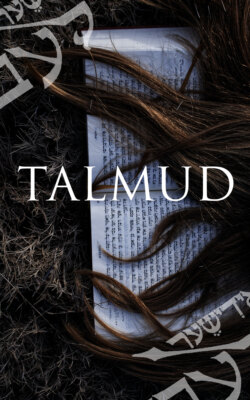Читать книгу Talmud - Various Authors , Government of Brandenburg - Страница 12
На сайте Литреса книга снята с продажи.
CHAPTER II.
ОглавлениеMISHNAS I. AND II. Permissible and non-permissible oils and wicks for lamps on the Sabbath and 'Hanukah (feast of Maccabbees); the law of the 'Hanukah lights; 'Hanukah and the miracle; the duration of 'Hanukah; benedictions to be said on that festival; the reward of those who keep the Sabbath-light commandment; the reward of those who esteem scholarship, The second Mishna treats on: What balsams may and may not be used both for light and for the person on the Sabbath; a narrative of a woman who hated her daughter-in-law; who may be called a rich man, 31-42
MISHNAS III. TO V. What wicks made from parts of trees may be used; whether broken vessels may be used for fuel on a biblical feast clay; what may be done with the residue of oil left in a lamp; practical laws of egg-shells and whether chairs may be dragged on the floor on Sabbath. The different opinions of R. Eliezer and R. Aqiba concerning the defilement of a piece of cloth, and if it is allowed to make a wick of it. What happened with R. Jehudah in the Hall of Beth Nitza and with Abhin of Ziphoris, who committed certain acts which were not allowed, in the presence of the sages, 42-49
MISHNA VI. Whether a light may be extinguished on Sabbath either for fear of accident or to afford rest for the sick; the question asked R. Tan'hum of Nav and his replying sermon; the soul being called the "Light of God"; the intended concealment of the Book of Proverbs and Ecclesiastes; the Shekhina (divine presence) not resting with a man except through his joy of having performed a good deed; Rabha's custom when commencing his lectures to his disciples. R. Gamaliel's sermon and answers to the disciple who derided him. The story of the three proselytes rejected by Shamai and accepted by Hillel. "What is hateful to thee, do not unto thy neighbor, that is the law. All else is but a commentary." The six sections of the Mishna are inferred from a biblical passage. The first thing asked of a man when standing before the divine judgment is, "Hast thou traded in good faith?" The "Fear of the Lord" is the chief principle. The wicked fear death, although mentioning it every day, 48-53
MISHNAS VII. AND VIII. The sins of women are passed upon when confined in childbirth, the sins of men while in danger, A good deed is committed through the agency of a meritorious person and a bad deed through the agency of the wicked; all who are about to die must repent of their sins; the defenders of man before divine judgment are repentance and good deeds. A thousandth part of one defender saves a man from the danger threatened him by a thousand accusers. The penalties imposed upon man for hating without cause; for robbery; for perverting or procrastinating justice; for destroying the law; for murder; for adultery; for idolatry; for using obscene language. The story of R., Simeon ben Johai, who remained in a cave for twelve years. The causes leading up to his concealment in the cave; his adventures after leaving the cave. The three things to be said by a man in his house on Friday eve; how they are to be said; when twilight takes place; how many signals of the horn were blown to remind the people of the advent of the Sabbath. Is there a difference between a shophar and a fife?, 53-62
